Poland Bioarchaeology Field School
Field School | Research | Student Narratives
The Summer 2025 program is enrolling directly through the Slavia Foundation.
- Interested students should read more information on the Slavia Foundation website and apply through the Slavia Foundation by requesting an info packet via this form or by emailing fieldwork@slavia.org.
- Cal Poly Humboldt students should also contact Dr. Marissa Ramsier at marissa.ramsier@humboldt.edu.
- Students are encouraged to apply early - the application deadline is rolling until all spaces are filled.
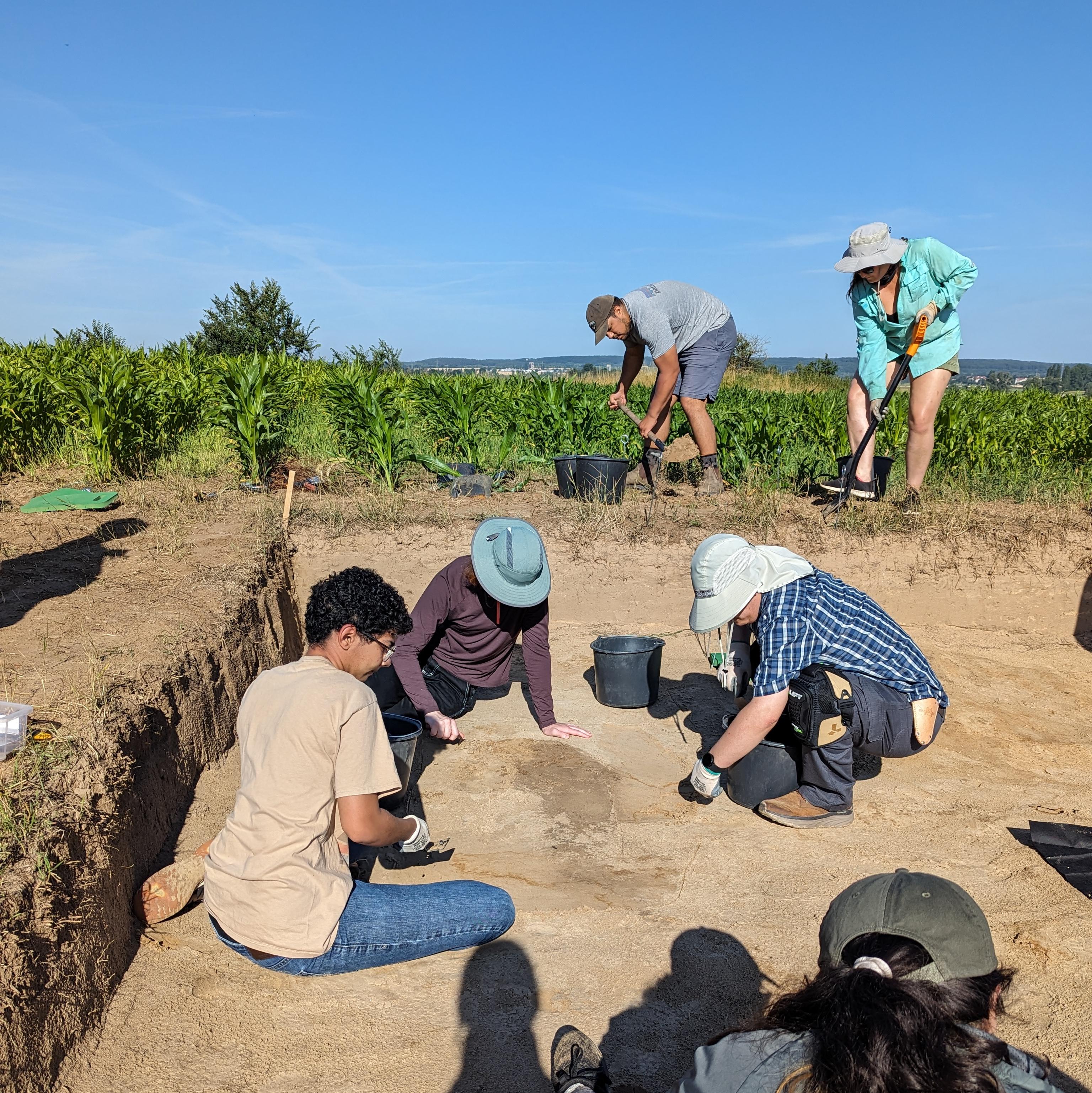
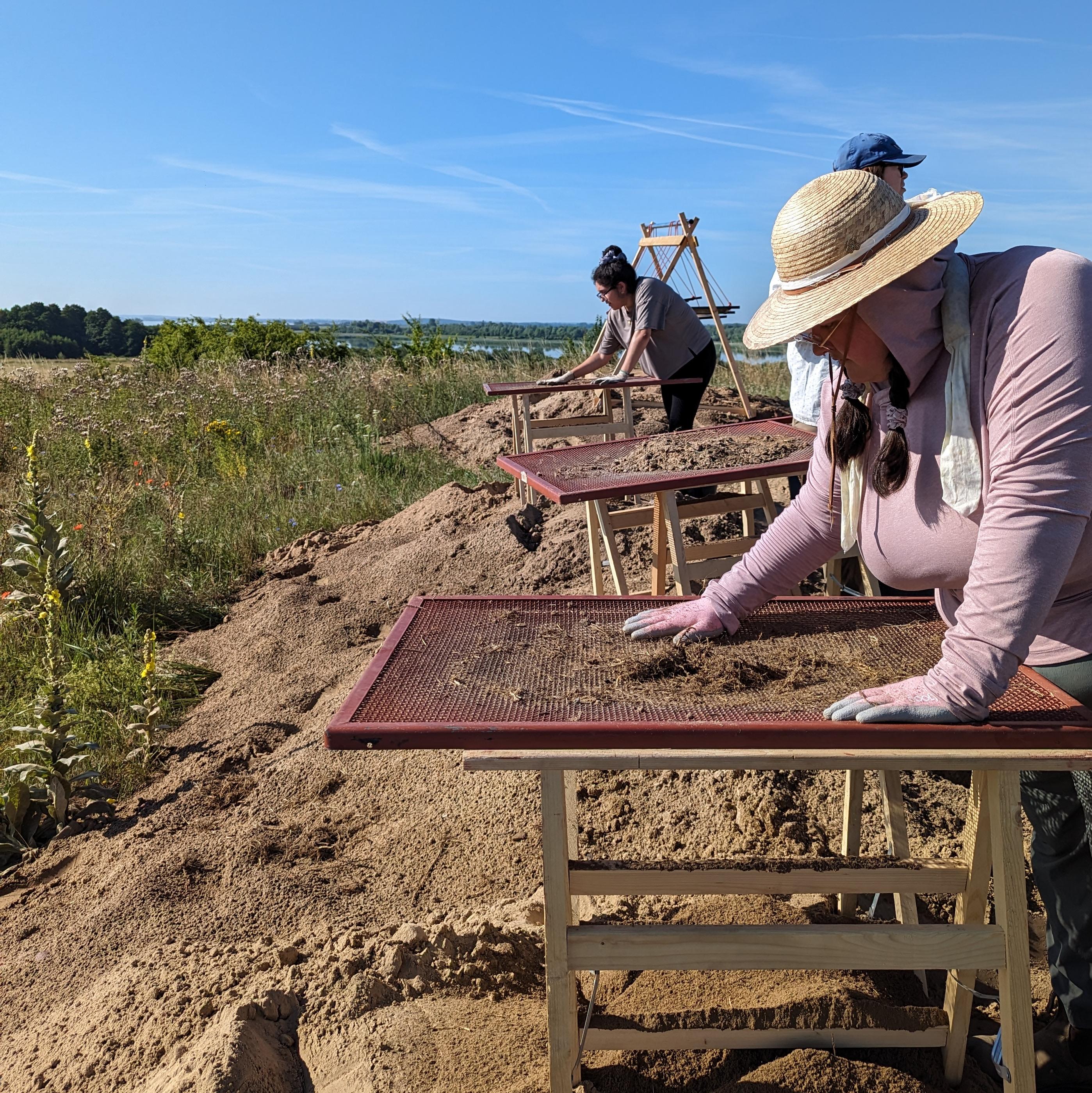
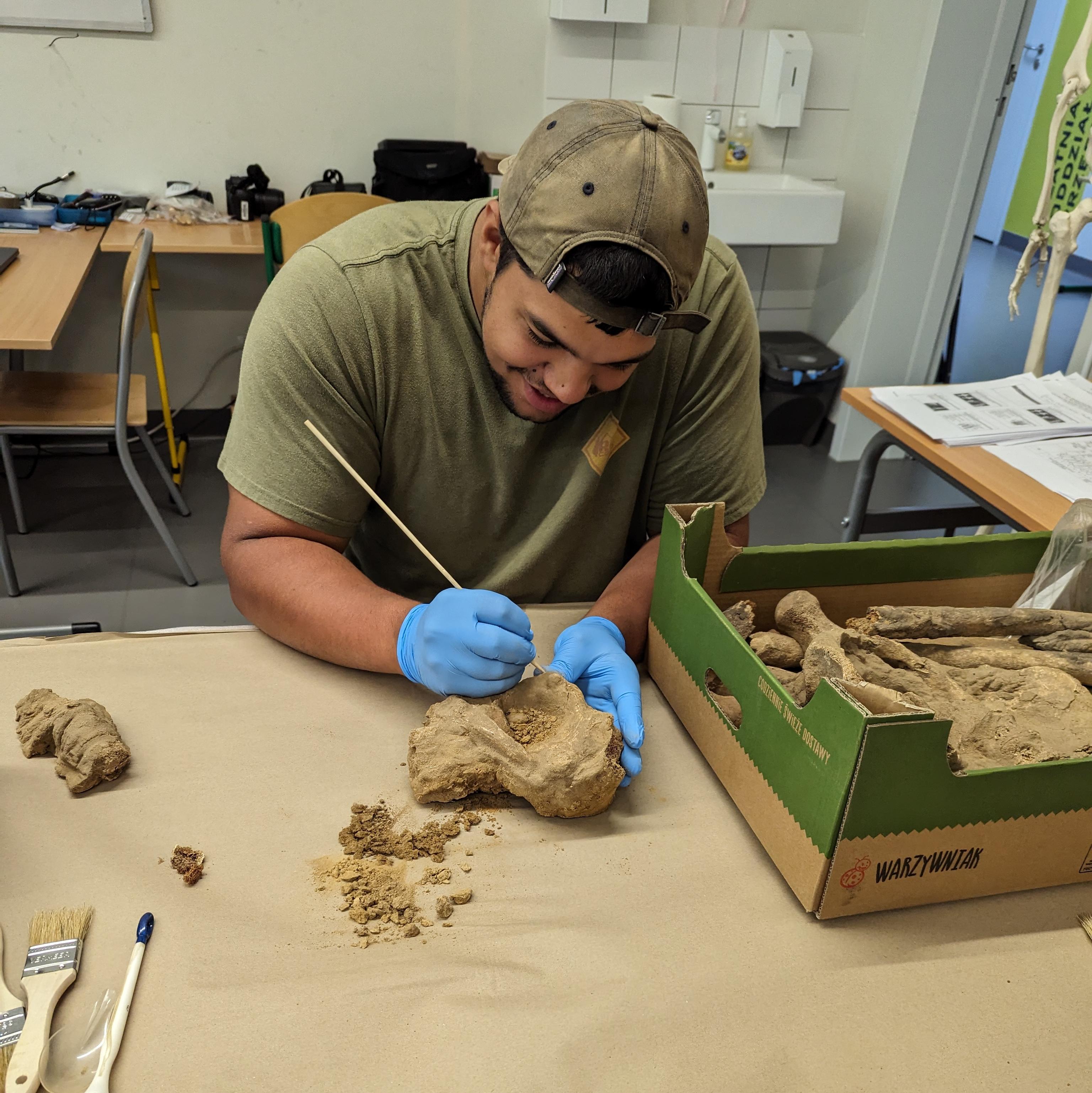
The Medieval Bioarchaeology Field Program in Żelewo, Poland is a summer field school run jointly by faculty from the University of Szczecin in Poland and other institutions in the US and Poland. The program is run in cooperation with the Slavia Foundation. It is a unique opportunity to excavate and analyze medieval remains as part of a salvage archaeological project due to intensive agriculture and natural processes in the region.
The field school takes place in the beautiful countryside village of Żelewo in northwestern Poland, about 60 miles south of the Baltic Sea. The cemetery site at Żelewo dates mostly to the 13th - 15th Century, but the site also contains at least one much older burial, and traces of occupation tens of thousands of years earlier. During the medieval period until recent decades, the site was part of the region known as Pomerania. During the medieval period, the site was part of the estate of the Kołbacz Monastery, which was associated with the Cistercian Order. Goals of the project include mitigating site damage and participating in rebuilding the history of the region that has been lost to time and the destruction of records during WWII.
This is an active research site, and students participate directly in the research. So far, more than 40 burials have been revealed, mostly but not all consistent with Christian burial practices. We are just beginning to understand the broad context of the cemetery and its relationship to numerous surrounding features yet to be fully excavated. This site is expected to reveal numerous additional burials and other features, providing an excellent opportunity for real hands-on experience analyzing remains.
This program is an intensive and rewarding experience. Students work side-by-side with archaeologists and osteologists to locate and excavate burials – they learn field methods such as leveling, revealing grave shape, and careful excavation. In the lab, students gain skills in human osteology and pathology by analyzing remains and producing biological profiles of the individuals. Students also experience Polish culture and history firsthand by interacting with the community and visiting historical sites such as castles and churches, while living in a country that has long been a crossroads of central Europe.
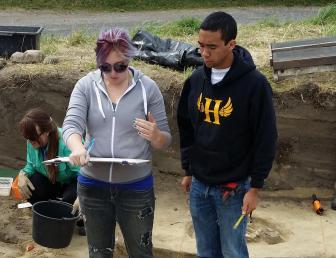
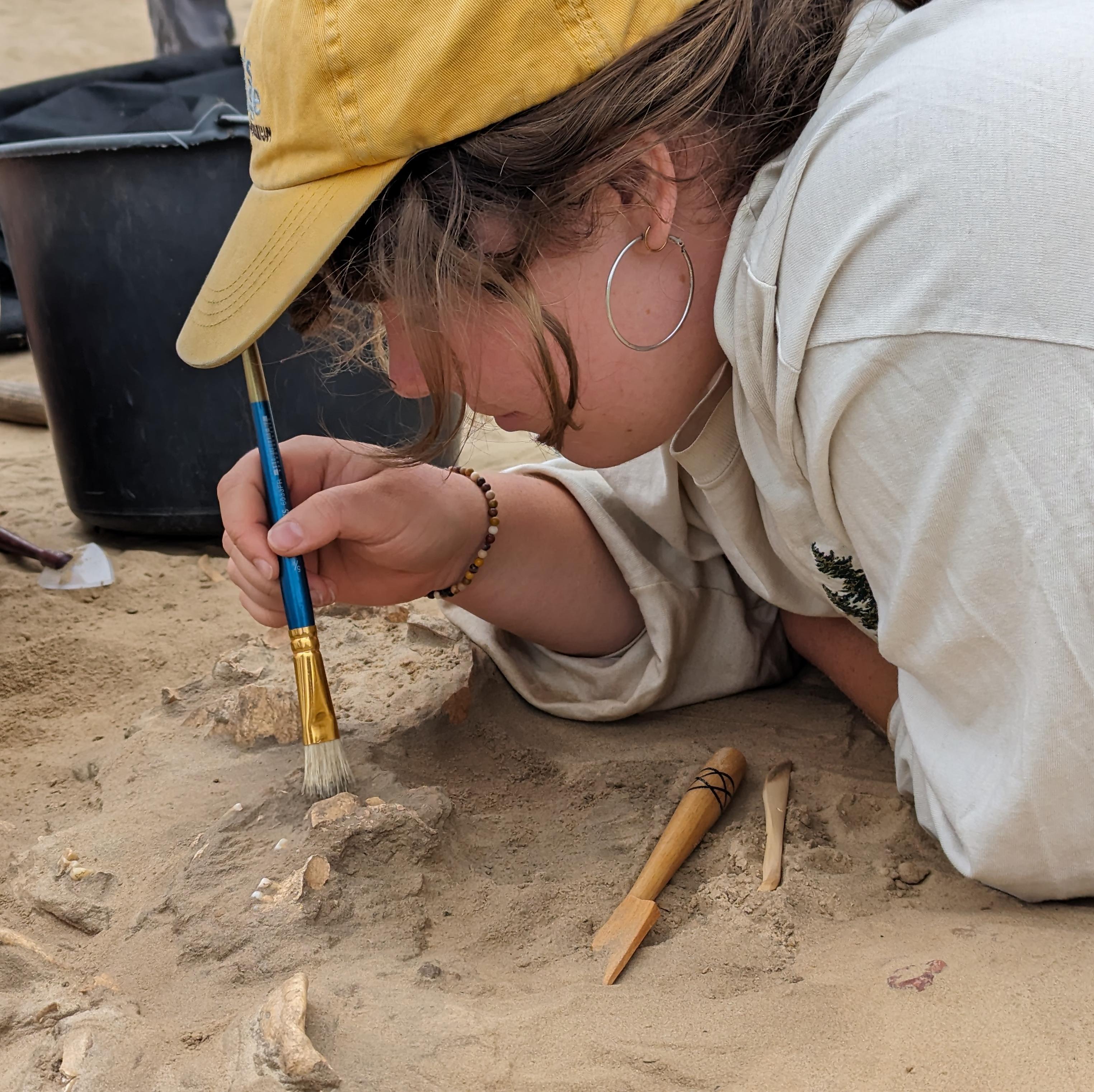
Courses/Units
- The Summer 2025 program is running through the Slavia Foundation. With approval from the Slavia Foundation, students may earn credit from Adam Mickiewicz University in Poznań. This is coordinated by the Slavia Foundation, not by Cal Poly Humboldt. Any questions about these units should be directed to fieldwork@slavia.org.
- Students should contact their academic advisors to discuss how this program may count towards fulfillment of their program requirements. Anthropology students should contact Marissa Ramsier at marissa.ramsier@humboldt.edu.
Dates for Summer 2025: Session 1 from June 30 - July 23. Session 2 from July 24 - August 16.
- Arrival: It is recommended that students arrive at/near Poland at least one or two full days ahead of the start dates. Many students enjoy arriving ahead and touring the region. The field school bus picks students up in Szczecin the morning of the first day of the session indicated above. Szczecin is the regional capital about 18 miles from the field site and about 2.5 hours from Berlin. To get to Szczecin, students take a bus/train from their arrival airport of choice. It is possible to fly directly to the Szczecin-Goleniów Airport (SZZ), although for more options and best bus/train service, we recommend arriving at the Brandenburg Airport (BER) airport and catching the FlixBus next to the airport. Students attending the program will be provided additional information in a shared Google Doc - if you are attending and do not have access to the document, please email marissa.ramsier@humboldt.edu
- After the program: Bus returns students to Szczecin in the morning the final day of the program. From this point, students may continue travel independently or take a bus/train to their departure airport. If leaving directly after the program, students are advised to plan their flight no sooner than the late afternoon. We recommend planning the departing flight at least a day after the program to give yourself time to sightsee.
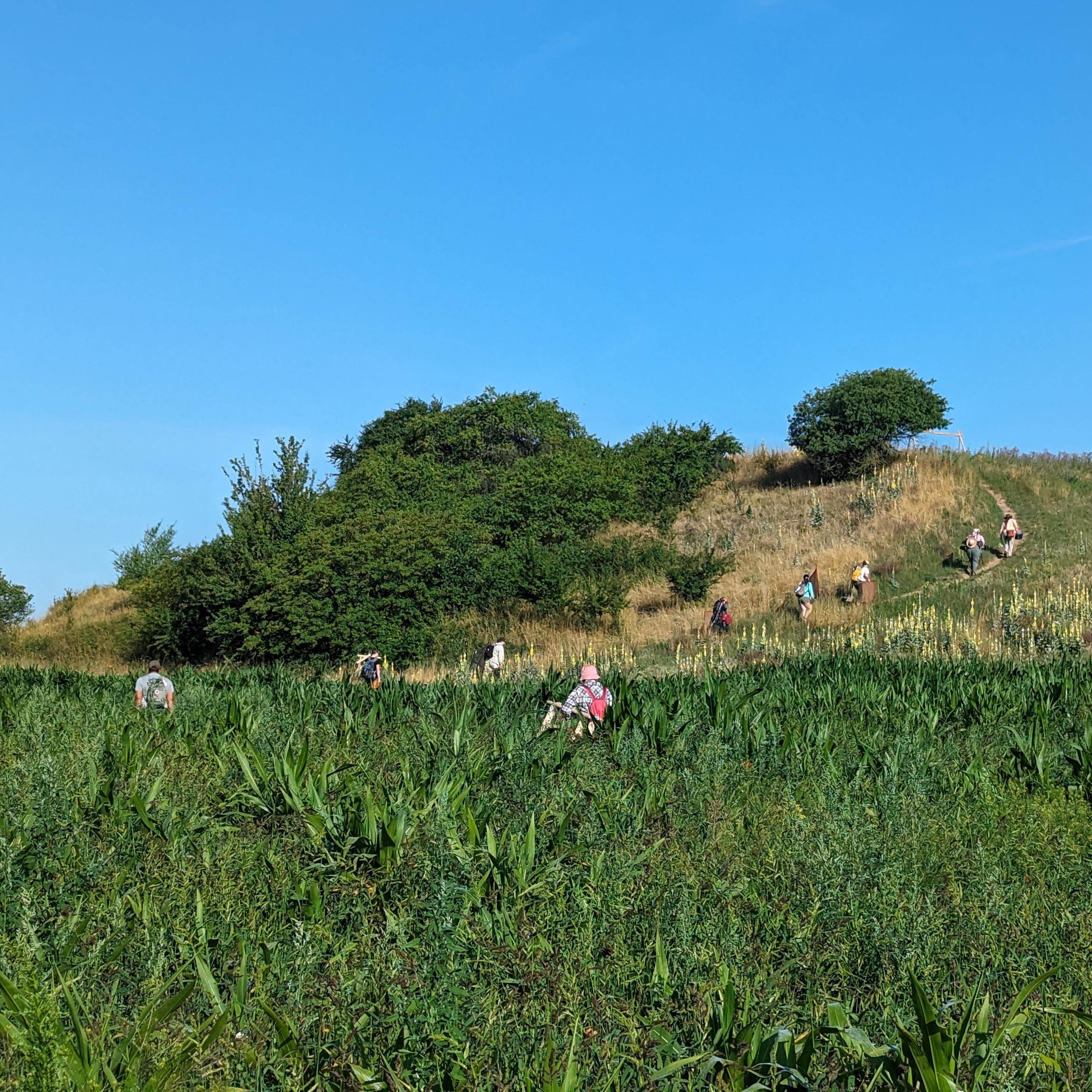
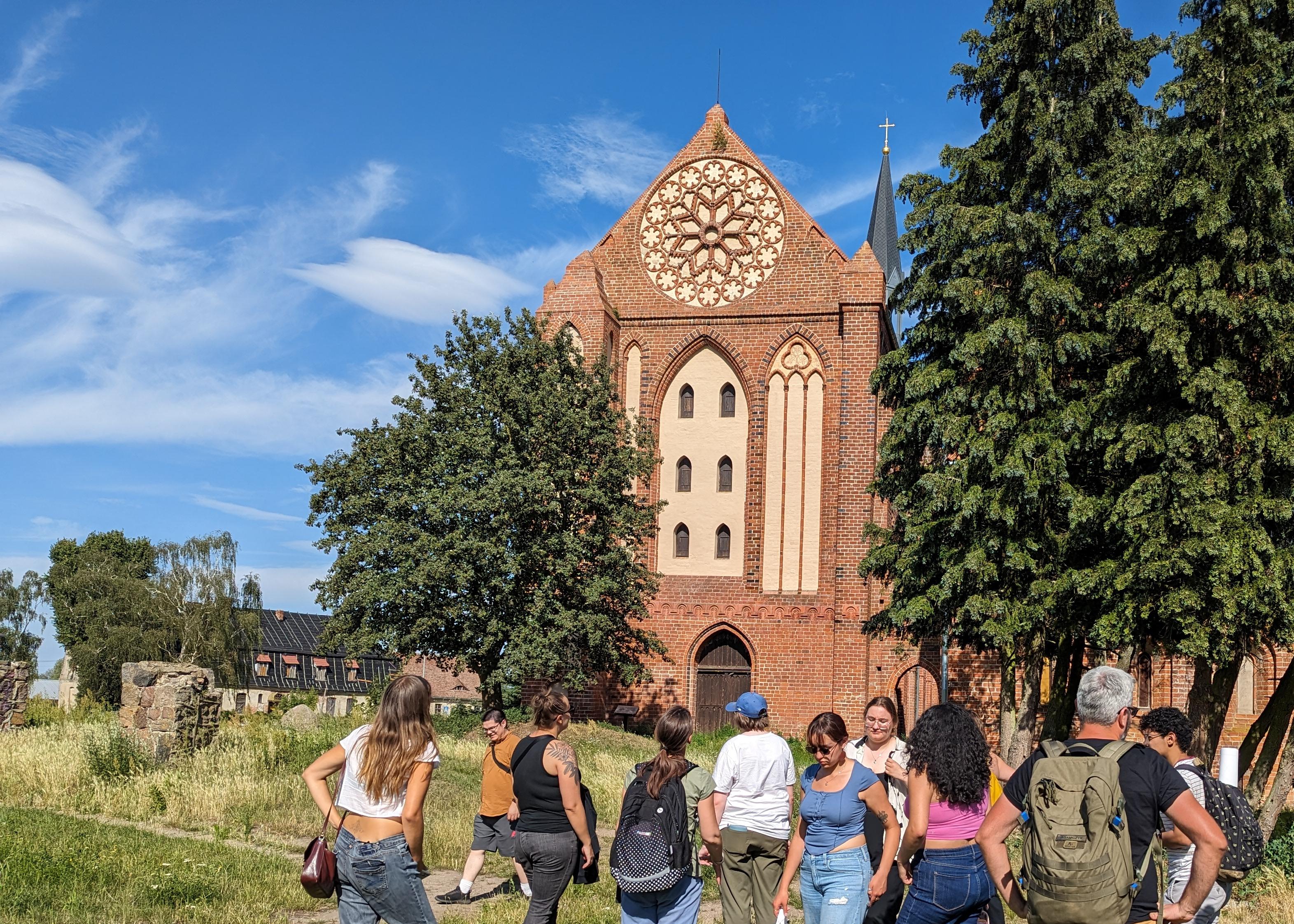
Location / Site
- The field school takes place in the beautiful countryside village of Żelewo (see map) in northwestern Poland. Żelewo is a small village on the shore of Lake Miedwie. There are many additional towns and villages around the lake, including Kobylanka, where we plan to lodge. The site is about 18 miles from the regional capital Szczecin.
- Students stay in classrooms (at a local school) that have been adapted as dormitories. There are restroom and shower facilities. Cell phone reception at the school is generally good. Internet/Wi-Fi is available but sometimes intermittent.
- Meals are served at in the morning, afternoon, and evening. We will eat healthy Polish fare, and vegetarian options are available for all meals. Water is drinkable from the tap. There are markets directly by the lodging site.
- During the program, students have weekends free to tour the region. We also visit sites in the nearby region (Szczecin, Stargard, Kołbacz) as part of a group trip.
Budget (preliminary)
- Fees: For 2025, costs will be determined by and through the Slavia Foundation. An estimate is $3,500. The program fee covers in-Poland costs between pick-up and drop-off at the arrival city (Szczecin, Poland). This includes travel from Szczecin to the site and back, lodging at the site, and meals during the program. Students are responsible for additional costs for any choice travel, outings, and snacks, etc... before/during/after the program.
- Travel to and from Poland: Cost varies. Students are responsible for their own travel to and from Szczecin, Poland (see schedule for more information). Cost varies depending on time of purchase and travel choices. Flights are generally least expensive if purchased in advance and if flying from a major airport (e.g., SFO). Flying from the East Coast is generally less expensive. Specific information will be provided to attendees. Students are advised to not purchase airfare until their acceptance to the program is verified; however, keep in mind that fares are lower with early purchase. Students are advised to purchase flight insurance; the program shall not reimburse students for airfare if for any reason the student does not attend the program or if incorrect flights are purchased prior to confirming arrival information with faculty.
- Funding: Financial aid for summer is a bit different than it is for fall and spring. Humboldt students typically need to be enrolled in at least 6 summer units through Humboldt in order to get financial aid. Since the Slaiva units are not directly through Humboldt, this may mean registering for other courses/units if you need summer financial aid. Humboldt students can discuss options with Dr. Ramsier and the Office of Financial Aid. Summer financial aid usually dispersed until mid summer, well after program fees are due and plane tickets need to be purchased (early-mid spring). For all of these reasons, students are advised to consider planning their spring budget/aid to cover costs.
- Contact the Financial Aid office to discuss options.
- Contact the Study Abroad office for recommendations.
- Additional limited sources include:
Contact Information
- The Summer 2025 program is running through the Slavia Foundation. Interested students should read more information on the Slavia Foundation website and apply by requesting an info packet via this form or by emailing fieldwork@slavia.org.
- Cal Poly Humboldt students should also contact Dr. Marissa Ramsier at marissa.ramsier@humboldt.edu.
